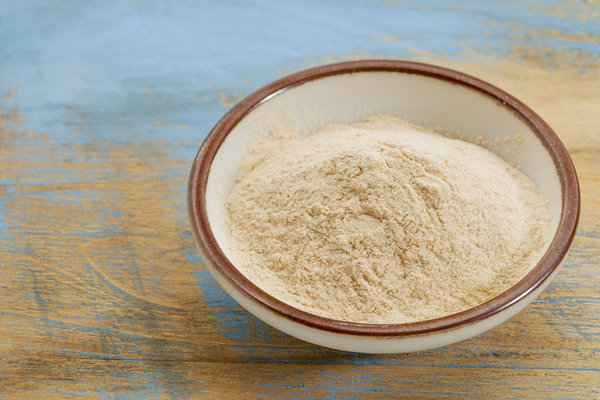Minerals

Minerals fulfill many important functions in the organism, such as
- the structure and stability of bones and teeth
- the regulation of the water and electrolyte balance
- the transmission of nerve impulses and muscle contractions
- the formation of blood cells and enzymes
- the activation of vitamins and hormones
Minerals can be divided into two groups:
Bulk elements and trace elements
Bulk elements are minerals that dogs need in large quantities, such as calcium, phosphorus, magnesium, sodium and potassium.
Trace elements are minerals that dogs only need in small quantities, such as iron, zinc, copper, iodine and selenium.
How many minerals does a dog need?
The optimum amount of minerals a dog needs each day depends on various factors, such as
- the dog's age, weight and activity level
- the dog's state of health and metabolism
- the quality and composition of the food
- the availability and usability of the minerals in the food
There is no generally valid recommendation for the mineral intake of dogs, as each dog is individual. However, there are guideline values that can serve as a guide. These are published, for example, by the FEDIAF (European Pet Food Industry Federation) or the NRC (National Research Council).
How can you recognize mineral deficiency or excess in dogs?
A mineral deficiency or excess in dogs can lead to various health problems, which can vary depending on the type and severity of the disorder. Some possible symptoms include:
- Weakness, tiredness and listlessness
- Hair loss, skin problems and poor wound healing
- Dental and bone problems, such as tooth decay, rickets or osteoporosis
- Nerve and muscle problems, such as cramps, paralysis or epilepsy
- Blood count changes, such as anemia or blood clotting disorders
- Metabolic disorders, such as diabetes or hypothyroidism
- Weak immune system and increased susceptibility to infections
In order to avoid or treat a mineral deficiency or excess in dogs, it is important to determine the cause and adjust the diet if necessary. You should always consult a vet who can make a precise diagnosis and recommend an individual therapy.
What is the best way to feed minerals to dogs?
The best source of minerals for dogs is a balanced and species-appropriate diet that contains all nutrients in the right amounts and proportions. You should pay attention to the quality and origin of the food and use natural and unprocessed ingredients wherever possible.
There are various ways of feeding minerals to dogs, such as
- Dry food or wet food, which is specially formulated for dogs and contains all the necessary minerals
- Barf, i.e. biologically appropriate raw food consisting of fresh meat, offal, bones, vegetables, fruit and other ingredients that correspond to the dog's natural prey pattern
- Ready-made food that is enriched with natural sources of minerals, such as algae lime, brewer's yeast, malt germ or grape seed extract
- Supplementary food that specifically supplies individual minerals that are missing from the food or are present in insufficient quantities, such as iron, zinc or iodine.
When choosing food, you should always consider your dog's needs and follow the recommendations of your vet or a nutritionist. Over- or underdosing minerals can be harmful and should be avoided.
Overview
There are many minerals, but here are some of the most important ones and their functions:
- Calcium necessary for building and maintaining bones and teeth.
- Phosphorus important for building and maintaining bones and teeth and for the metabolism of protein, fat and carbohydrates.
- Magnesium important for energy metabolism, muscle and nerve function and for building bones and teeth.
- Sodium helps to regulate the body's water and electrolyte balance.
- Potassium important for the heart rhythm and the function of muscles and nerves.
- Chloride important component of table salt, which helps to regulate the water and electrolyte balance in the body.
- Sulphur important for building proteins and other body structures.
- Iron necessary for the transportation of oxygen in the body and the formation of proteins, especially haemoglobin.
- Zinc important for the immune system, metabolism, wound healing and sensory perception.
- Copper necessary for the formation of red blood cells and the functioning of enzymes.
- Manganese important for the metabolism, bone formation and the functioning of enzymes.
- Fluorine helps protect teeth from decay.
- Iodine necessary for the formation of thyroid hormones.
- Chromium important for the metabolism of carbohydrates.
- Molybdenum important for the metabolism of nutrients such as iron.
- Selenium important for the functioning of the immune system and protection against oxidative stress.
In general, it is best to choose a high-quality dog food from a well-known brand that has been specially developed for the dog's needs. It is also important to check the food regularly and make sure the dog is drinking enough water to ensure adequate hydration. This will ensure that the dog is getting all the essential minerals it needs to stay healthy and happy.
Minerals are vital nutrients for dogs that support many functions in the body. A balanced and species-appropriate diet is the best way to ensure an optimal supply of minerals.
Properties 4
Are you looking for other ingredients with a specific property?
Just click on them to find more.
If you notice any signs of hypersensitivity or poisoning in your dog, you should see your vet immediately. We are not a substitute for a vet, but we try to be as accurate as possible. Every dog reacts differently and we recommend you get a second opinion or consult your vet if in doubt.
Stay healthy and take good care of your four-legged friend!😊
Similar to Minerals
Calcium is a chemical element that occurs naturally and is found in many foods. Calcium is primarily responsible for building and maintaining bones and teeth, but it also has other important...
Phosphorus and calcium interact closely with each other. Too high or too low an intake of one of the two minerals can disturb the balance and lead to health problems. Too much phosphorus can...
The optimum magnesium intake for dogs depends on various factors, such as your dog's age, weight, activity level and state of health. It is therefore difficult to give a general recommendation....
Your dog's potassium requirement depends on various factors, such as its age, size, health and activity level. A general recommendation is that an adult dog needs about 1 to 2 milligrams of...



